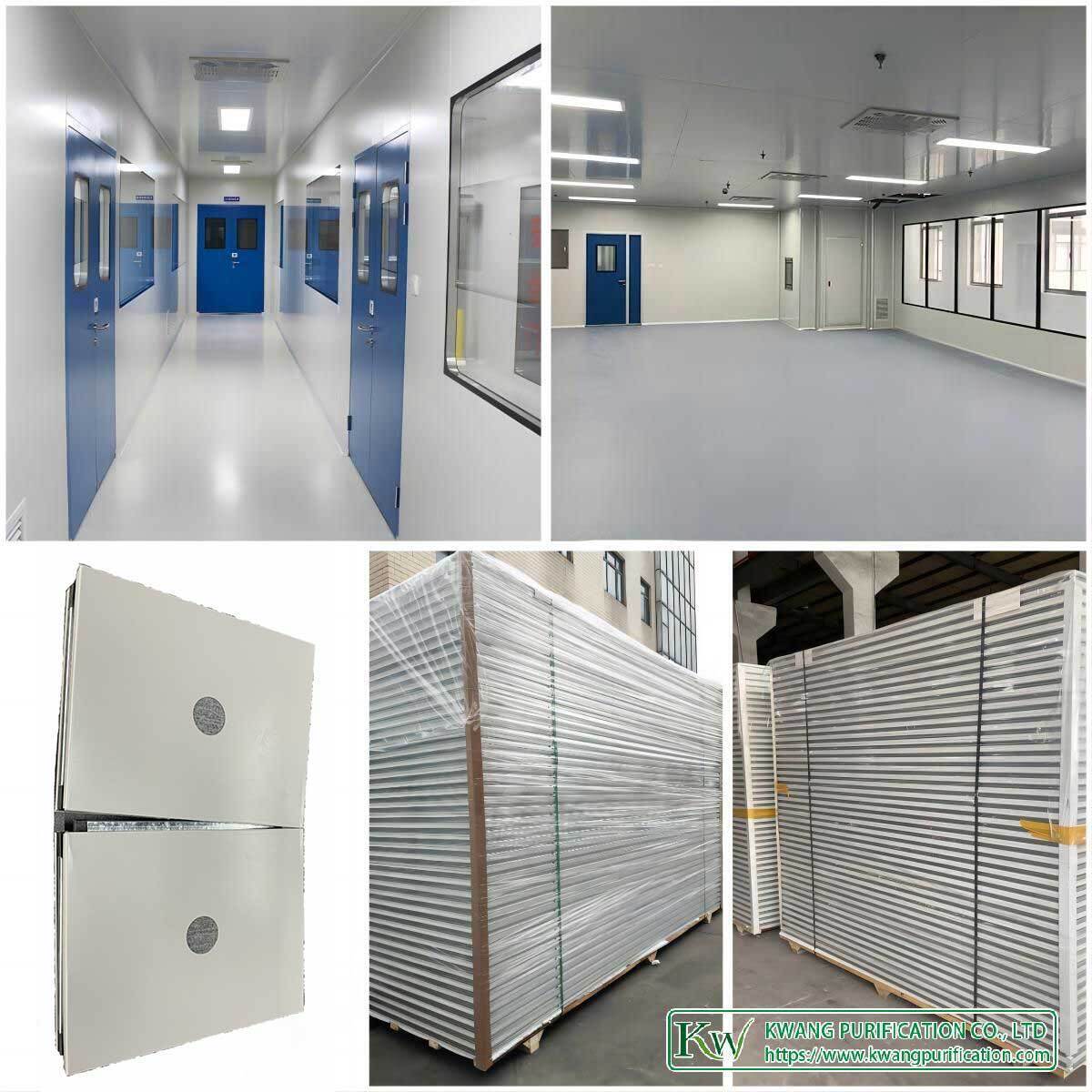Rockwool Handmade Cleanroom: Enhancing Cleanroom Performance and Contamination Control
- 2024-02-03
- View 8
In cleanroom environments, where precision, sterility, and contamination control are crucial, the construction materials used play a vital role. One such material that has gained significant popularity is Rockwool. Known for its excellent insulation properties and durability, Rockwool is widely used in the construction of cleanrooms In this article, we will explore the concept of Rockwool handmade cleanrooms and the benefits they offer.

Rockwool in Cleanroom Construction
Rockwool, also known as mineral wool, is a versatile and high-performance insulation material made from natural basalt rock and recycled slag. It is manufactured through a process of melting and spinning the raw materials into fibers, which are then formed into various products, including panels, boards, and blankets.
Benefits of Rockwool Handmade Cleanrooms
Rockwool handmade cleanrooms offer several advantages over traditional cleanroom construction materials. Some of the key benefits include:
a. Thermal and Acoustic Insulation:
Rockwool exhibits excellent thermal insulation properties, helping maintain a stable temperature within the cleanroom. This insulation capability reduces the energy required for temperature control systems, resulting in cost savings. Additionally, Rockwool's dense structure also provides effective sound absorption, reducing noise levels within the cleanroom environment.
b. Fire Resistance:
One of the notable characteristics of Rockwool is its exceptional fire resistance. It is non-combustible and can withstand high temperatures, making it a safe choice for cleanroom applications In the event of a fire, Rockwool acts as a barrier, preventing the spread of flames and the release of harmful gases.
c. Particle Filtration:
Rockwool's fibrous structure enables it to effectively trap and filter airborne particles, including dust, dirt, and contaminants. This feature contributes to maintaining the cleanliness and sterility of the cleanroom environment, reducing the risk of product contamination or compromised experiments.
d. Moisture Resistance:
Cleanrooms often require controlled humidity levels. Rockwool's hydrophobic nature repels moisture, preventing the absorption of water and moisture-related issues such as mold growth or material degradation. This moisture resistance ensures the longevity and durability of the cleanroom structure.
e. Customization and Versatility:
Rockwool can be easily cut and shaped to fit specific cleanroom requirements allowing for customized installations. Its versatility enables the construction of cleanrooms with complex designs, such as partitions, wall systems, ceiling panels, and duct insulation.
f. Sustainability:
Rockwool is an environmentally friendly option for cleanroom construction. It is made from natural and abundant raw materials, and its production process involves recycling industrial by-products. Additionally, Rockwool is fully recyclable at the end of its life cycle, contributing to a circular economy and reducing waste.
Handmade Cleanrooms with Rockwool
Handmade cleanrooms refer to cleanrooms that are constructed on-site using various prefabricated components, including Rockwool panels and other necessary materials. This construction method offers flexibility and allows for tailored cleanroom solutions to meet specific requirements.
The process of constructing a Rockwool handmade cleanroom involves precise installation of Rockwool panels as wall systems and ceilings, ensuring proper insulation and sealing. Other components, such as doors, windows, air filters, and HVAC systems, are integrated to create a fully functional cleanroom environment.
Applications of Rockwool Handmade Cleanrooms
Rockwool handmade cleanrooms find applications in a wide range of industries that require controlled environments. Some notable applications include:
a. Pharmaceutical and Biotechnology:
Rockwool handmade cleanrooms are commonly used in pharmaceutical and biotechnology facilities for the production, packaging, and testing of drugs, medical devices, and biologics. These cleanrooms ensure sterility, product integrity, and compliance with regulatory standards.
b. Electronics Manufacturing:
Electronics manufacturing requires cleanrooms to protect delicate electronic components from contamination. Rockwool handmade cleanrooms provide the necessary insulation, cleanliness, and protection against electrostatic discharge (ESD).
c. Research Laboratories:
Research laboratories conducting experiments that require precise control of environmental conditions can benefit from Rockwool handmade cleanrooms. These cleanrooms offer the necessary insulation, stability, and cleanliness to ensure accurate and reliable research outcomes.
Conclusion
Rockwool handmade cleanrooms offer a range of benefits, including thermal and acoustic insulation, fire resistance, particle filtration, moisture resistance, customization, versatility, and sustainability. With their excellent properties, Rockwool panels contribute to the creation of controlled and sterile environments necessary for various industries. Whether in pharmaceuticals, electronics manufacturing, or research laboratories, Rockwool handmade cleanrooms provide a reliable solution for achieving optimal cleanliness and contamination control.
FAQs
Q: Are Rockwool handmade cleanrooms suitable for large-scale cleanroom facilities?
A: Yes, Rockwool handmade cleanrooms can be designed and constructed for both small-scale and large-scale cleanroom facilities. The flexibility and customization options of Rockwool panels make them suitable for cleanrooms of various sizes.
Q: Can Rockwool handmade cleanrooms be upgraded or modified in the future?
A: Yes, one of the advantages of Rockwool handmade cleanrooms is their flexibility. The panels can be easily disassembled and reconfigured to accommodate future modifications or expansions of the cleanroom facility.
Q: Is Rockwool a sustainable choice for cleanroom construction?
A: Yes, Rockwool is considered a sustainable material. It is made from natural and recycled materials, and its production process involves minimal energy consumption. Furthermore, Rockwool is fully recyclable at the end of its life cycle.
Q: How often should Rockwool handmade cleanrooms undergo maintenance?
A: The frequency of maintenance for Rockwool handmade cleanrooms depends on various factors, including the specific cleanroom requirements and industry regulations. Regular inspections, filter replacements, and cleaning procedures should be carried out to ensure optimal performance and cleanliness.
Q: Can Rockwool handmade cleanrooms be designed to meet specific cleanroom class requirements?
A: Yes, Rockwool handmade cleanrooms can be designed and constructed to meet specific cleanroom class requirements, such as ISO 14644-1 standards. The selection of Rockwool panels and integration of appropriate filtration systems and controls ensure compliance with desired cleanliness levels.
Kwang Cleanroom is proud to offer examples of a variety of our cleanroom projects below.
Clean Room Workshop, Portable Cleanroom, Buckle Demising Cleanroom, Air Shower Clean Room, Cleanroom ISO Standards, Clean Room Manufacturing, Decontamination Room.
